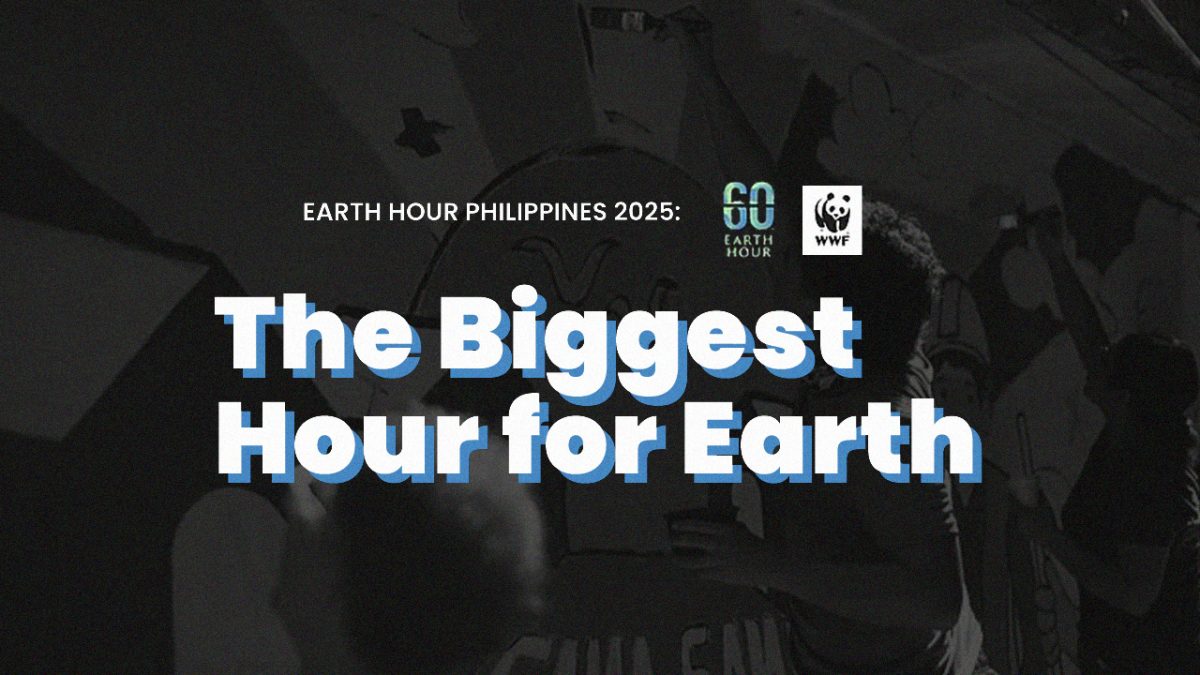MANILA, PHILIPPINES – The Philippines has once again proven itself as a global leader in climate action during Earth Hour 2025. Logging an unprecedented 1.3 million hours dedicated to the planet, Filipinos led the world in this year’s Earth Hour, cutting a remarkable 161.98 MW from the grid and rallying 44 institutions to take a stand for Earth.
WWF Philippines, the force behind the local celebration, proudly announced that Filipinos dedicated over 1.3 million hours to positive environmental actions.

“Filipinos want breathable air, cooler weather, clean water, healthy forests and ecosystems, and more renewable energy. This is the strong message they sent when they joined the global switch-off of Earth Hour. A clear sign that leaders and officials should do more for the environment and our planet,” said Atty. Angela Consuelo Ibay, Earth Hour Philippines National Director.
Data collated on the EarthHour.org website through self-reporting of individuals showed Philippines had 1,377,368 hours, while China had 783,674 hours and India had 359,652 hours. The global celebration of Earth Hour in 2025 collected a total of 2,925,040 hours from 118 countries and territories, underscoring the collective effort towards environmental and climate action.
Earth Hour this year was not just about switching off lights. Across Manila City, four barangays joined forces to transform blank walls into powerful murals, portraying community visions and environmental aspirations. Residents and volunteers worked side by side, proving that young hands can indeed create a big impact.


In Donsol, Sorsogon, environmental advocates and volunteers came together, reaffirming their commitment to sustainability and marine conservation, highlighting how Earth Hour has evolved from an hour-long switch-off to a global movement fostering real-world actions.
The Department of Energy reported a substantial drop of 161.98 MW in grid load during Earth Hour, a significant increase from last year’s 132.11 MW. The jump in participation — more than 1000% compared to 2024 — underscores the growing urgency for climate action in the Philippines.
“While Earth Hour started as a movement to raise awareness on climate change back in 2007, it has now evolved into a bigger movement towards societal, cultural, and more importantly political, actions for a more environment-friendly world,” Ibay said.
“Our country has been consistently the top-ranked country in the world when it comes to disaster risk. It is about time that Filipinos demand concrete actions, not just promises, from leaders to put measures in place that will protect people from the adverse effects of climate change,” she added.

Earth Hour, celebrated this year with the theme “Switch Off and Secure Water for All,” is the world’s biggest grassroots movement, promoting awareness of the impacts of climate change and environmental protection and the actions people can take to address them. WWF Philippines led the celebration by supporting activities at different locations and cities, allowing for a wider reach and bigger impact across the country. The aim for Earth Hour this year is to highlight issues on water security and its connection to climate change impacts and protecting nature.










